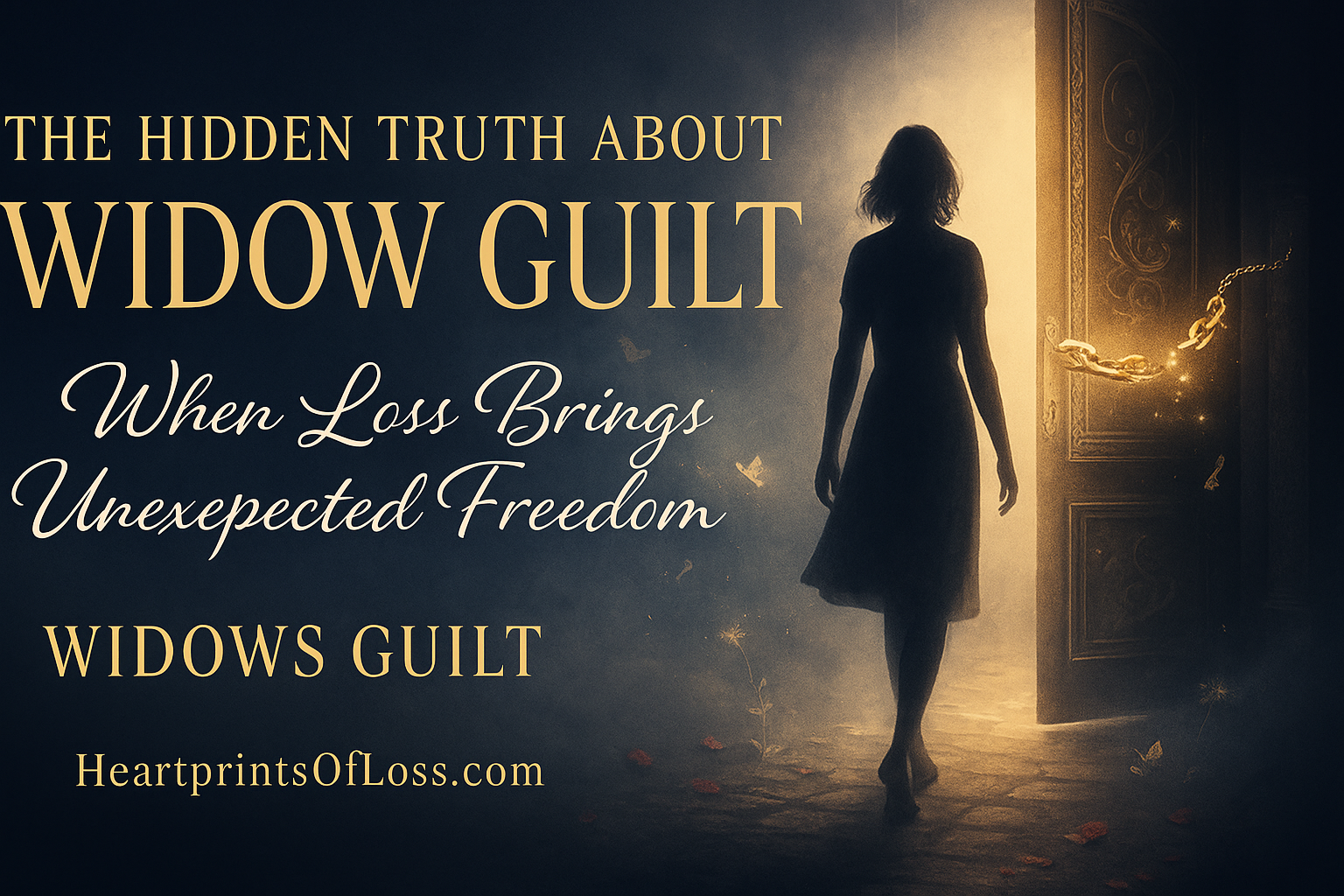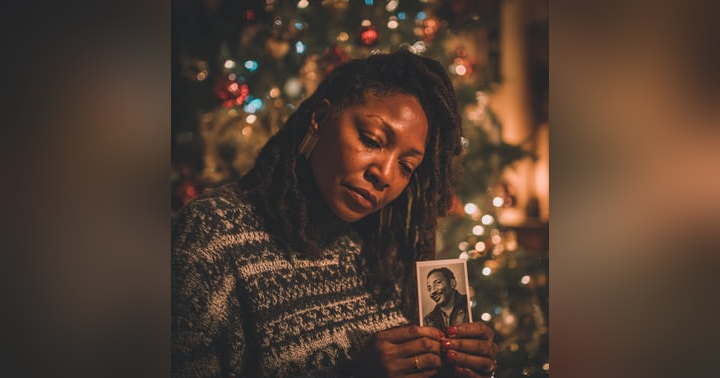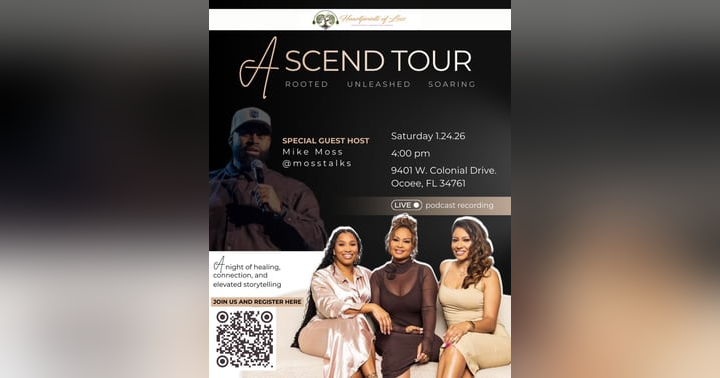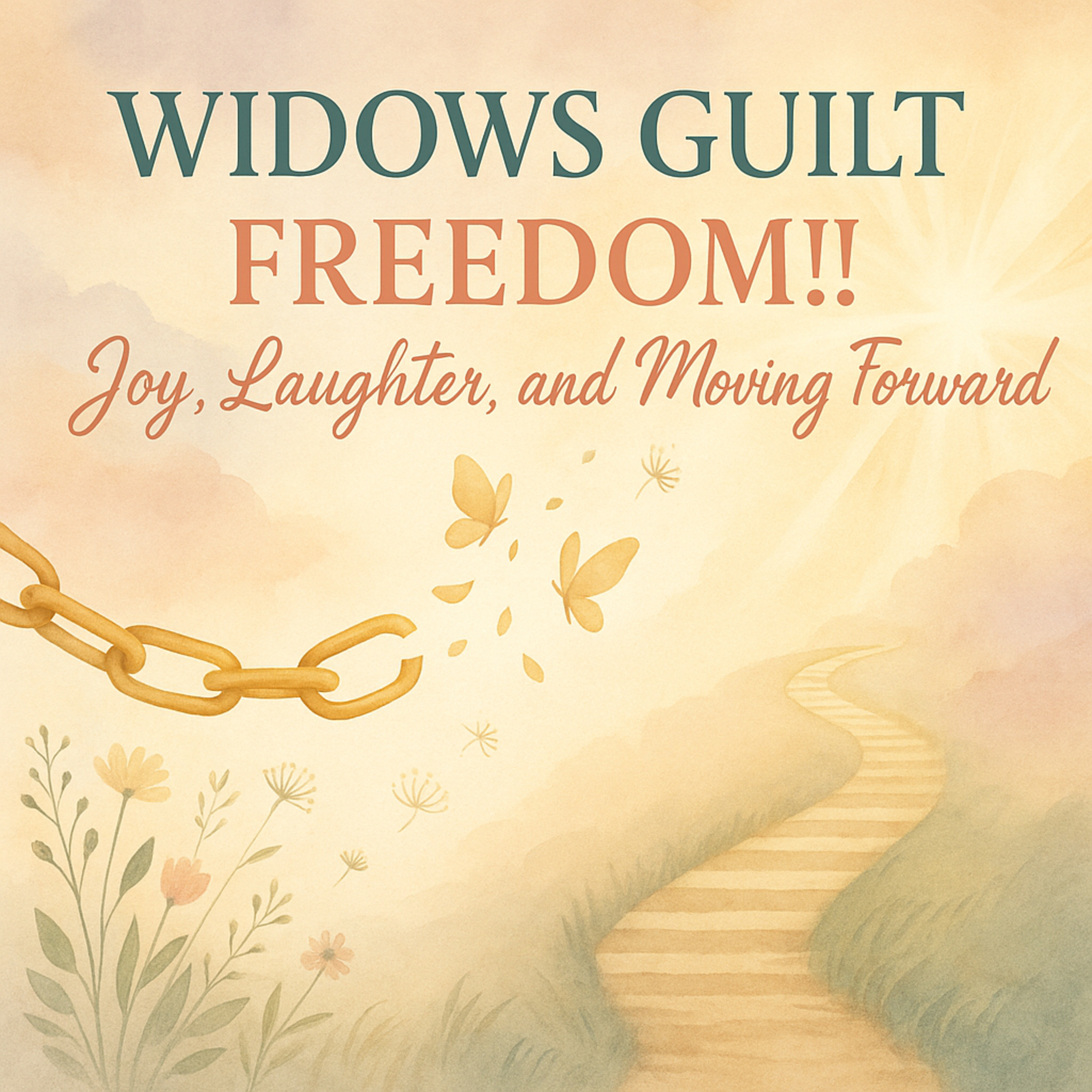The Hidden Truth About Widow Guilt: When Loss Brings Unexpected Freedom

The Hidden Truth About Widow Guilt: When Loss Brings Unexpected
The Hidden Truth About Widow Guilt: When Loss Brings Unexpected Freedom
A deep dive into the complex emotions widows face when grief comes with relief
In the widow community, there's a conversation that rarely happens in public spaces. It's the whispered admission that sometimes, losing a spouse brings an unexpected sense of freedom—and the crushing guilt that follows. In a recent episode of Heartprints of Loss, hosts Amanda, Sophy, and Kristin courageously opened up about this taboo topic, creating space for widows everywhere to acknowledge their complex emotions without shame.
The Silence Around Complex Grief
"Everyone's relationship, marriage, wasn't perfect," Amanda shared during their honest discussion. "My husband was not perfect, and we tend to talk about how we loved our spouses and how it hurt us to lose them. Sometimes that's not always the case for everyone."
This acknowledgment breaks through the societal expectation that all widows should be consumed by devastating sadness. The reality is far more nuanced. Some widows find themselves free from years of caregiving, others from toxic relationships, and many experience a mixture of grief and relief that leaves them feeling guilty and confused.
When Freedom Comes After Abuse
Kristin's story exemplifies this complexity. Having known her husband since age 12, their relationship spanned two decades filled with what she describes as mutual toxicity and abuse across multiple levels—verbal, physical, and mental. When he passed away at 32, she initially focused on the love she felt for him and the family they'd built together.
It wasn't until years later, during a grief support group, that she experienced a revelation. "A lady stood up and said, 'I'm free, and I'm happy that he's gone,'" Kristin recalled. "At that moment, I realized that I was free, and it hadn't clicked that I hadn't been abused. I hadn't had to verbally abuse him. I had to realize that I have been free for five years from all of this."
This realization didn't diminish her love for her late husband or invalidate her grief. Instead, it highlighted the complicated nature of human relationships and the layered experience of loss.
The Caregiver's Dilemma
Amanda's experience represents another common but rarely discussed aspect of widow guilt. Her husband's prolonged illness required intensive caregiving, and she was preparing to transition to full-time care when he passed away.
"That weekend when he was coming home from being hospitalized, we were coming home with everything—the bathroom chair, the bed, the breathing machine," she explained. "I was gearing down to be full-on caretaker, and I know my husband would have never wanted to put that on me."
The freedom from caregiving responsibilities, while accompanied by profound grief, also brought relief—a relief that many caregiving spouses feel guilty about experiencing.
Different Types of Freedom
Sophy offered a lighter perspective on freedom, sharing humorous moments like being able to eat pork or order her steak medium-rare without her husband's playful but persistent objections. However, she also revealed deeper contemplations about potential alternate realities.
Her husband died in a car accident while on parole. She reflected on how, had he survived, she would likely have become his caretaker due to potential paralysis, or would have spent years visiting him in prison due to parole violations. These thoughts led her to wonder if his death might have been a form of mercy—for both of them.
The Guilt of Thriving
One of the most challenging aspects of post-loss freedom is the guilt that accompanies personal growth and happiness. As Kristin noted, "You're evolving, you're thriving, and you're like, 'Wait, how could this be? I just lost my husband.'"
This phenomenon, known as post-traumatic growth, is well-documented but rarely discussed in widow communities. The ability to thrive after tragedy can feel like a betrayal of the deceased spouse, even when it represents healthy healing and personal development.
Breaking the Taboo
The conversation around widow guilt and freedom serves several crucial purposes:
Validation of Complex Emotions: Acknowledging that grief isn't always straightforward helps widows feel less alone in their experience.
Permission to Heal: Understanding that growth and happiness after loss are normal and healthy gives widows permission to embrace their healing journey.
Honoring Truth: Speaking honestly about deceased spouses—including their flaws—prevents the harmful practice of putting them on pedestals.
Community Support: Sharing these experiences creates deeper connections within the widow community and helps others feel less isolated.
The Importance of Honest Grief
Amanda emphasized a crucial point from her therapy training: the importance of not idealizing deceased spouses. "It's very important that you don't put your husband on a pedestal. Be real about who he was," she shared, reflecting advice from her own therapist.
This honest approach to grief allows for a more authentic healing process. It acknowledges that love and difficulty can coexist, that grief and relief can be experienced simultaneously, and that healing doesn't require perfection in our memories.
Moving Forward Without Shame
The three hosts' willingness to share their vulnerable truths creates a roadmap for other widows struggling with similar feelings. Their message is clear: your experience is valid, regardless of how it looks or feels.
Whether your freedom comes from:
- Release from caregiving duties
- Escape from an abusive relationship
- Relief from financial stress
- Liberation from controlling behaviors
- Or simply the ability to make decisions independently
Your feelings are legitimate, and your healing journey is yours to define.
Creating Safe Spaces
"When we talk, it's like we're in a safe place with no judgment," Kristin observed about their trio's dynamic. This safety is crucial for widows processing complex emotions around loss and freedom.
Finding or creating these safe spaces—whether through support groups, therapy, online communities, or trusted friendships—allows for the honest processing necessary for healthy grief work.
The Ripple Effect of Sharing
By courageously sharing their stories, Amanda, Sophy, and Kristin create permission for other widows to explore their own complex emotions. As Kristin noted, "Every time I share my story, I free myself, and I might free somebody else."
This ripple effect extends beyond the widow community, helping anyone who has experienced loss understand that grief is not a monolithic experience but rather a deeply personal journey with many possible expressions.
Embracing Your Truth
The conversation around widow guilt and freedom isn't about celebrating death or minimizing loss. It's about acknowledging the full spectrum of human experience and emotion. It's about recognizing that love and struggle can coexist, that grief and growth can happen simultaneously, and that healing often comes in unexpected forms.
For widows reading this who resonate with these experiences: your feelings are valid. Your relief doesn't make you a bad person. Your growth doesn't dishonor your spouse's memory. Your freedom—whatever form it takes—is part of your unique healing journey.
Resources and Support
If you're struggling with complex grief emotions or widow guilt, consider:
- Joining widow support groups that welcome honest conversation
- Working with a grief counselor familiar with complex loss
- Connecting with online widow communities
- Exploring resources on post-traumatic growth
- Reading books about complicated grief
Remember, healing is not linear, and there's no right way to grieve. Your experience matters, your story is valid, and you deserve support as you navigate this challenging journey.
The Heartprints of Loss podcast continues to break barriers and create safe spaces for honest conversations about grief, loss, and healing. Their courage in addressing difficult topics helps widows everywhere feel less alone in their journey.
Keywords: #WidowGuilt #GriefHealing #WidowSupport #ComplexGrief #PostTraumaticGrowth #HealingJourney #WidowCommunity #GriefSupport









